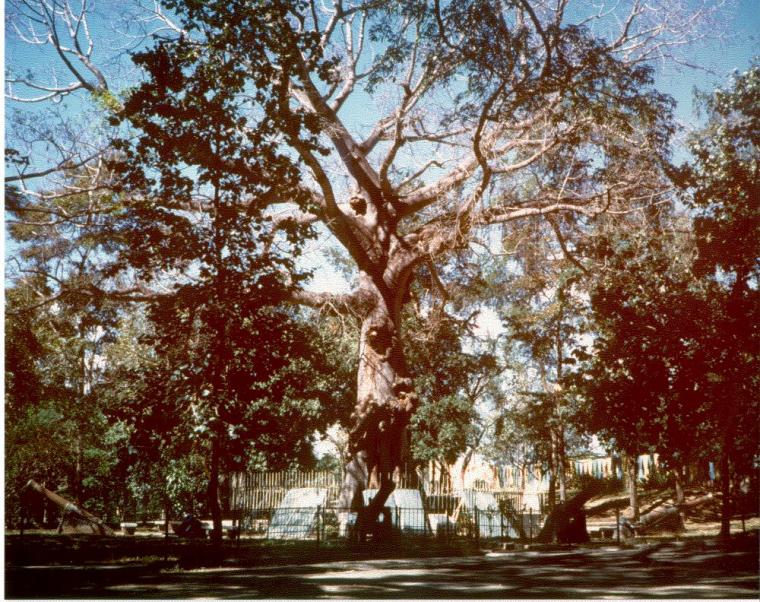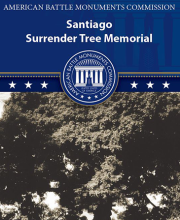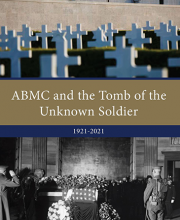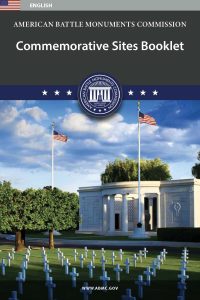The Santiago Surrender Tree Memorial is located in Santiago, Cuba. The monument marks the site at which Spanish forces, led by Gen. Toral, surrendered Santiago de Cuba to U.S. forces, led by Gen. William Shafter, on July 17, 1898 during the Spanish American War. On July 1, 1898 U.S. and Cuban troops had taken El Viso Fort, the town of El Caney and San Juan Heights, and San Juan Hill, with the help of the Rough Riders under Teddy Roosevelt. These victories opened the way to Santiago de Cuba. Clara Barton, founder of the American Red Cross, was among those who cared for the wounded at Santiago.
By an Act of Congress, the Santiago Surrender Tree became the responsibility of ABMC on July 1, 1958.
The original tree died, but in 1998 during the centennial ceremonies the Cuban government planted a new tree. The memorial area is surrounded by an iron fence, which is made up of barreled Spanish Mauser rifle actions. They are surmounted by cast reproduction triangular bayonets. The tree is flanked by large bronze plaques, which resemble open books. The pages of the books include the names of both the American and Spanish senior officers, and the Americans killed in action. The Cuban Liberation Army’s participation in the San Juan Heights assault is also mentioned. Flanking the walkway are four bronze 18th century Spanish cannons interspersed with four siege mortars.
 An official website of the United States government. Here's how you know.
An official website of the United States government. Here's how you know. 


